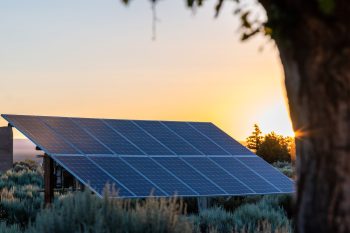Many of us have a weakness for chocolate. While it is a delicious treat that brings joy to kids and adults alike, experts have revealed the cocoa trade is having a serious impact on forests in Africa.
What's happening?
As The Guardian reported, satellite maps of the Ivory Coast and Ghana — which together produce more than half the world's cocoa from Theobroma cacao trees — show dense forest land has increasingly made way for cocoa plantations.
Per The Guardian, a recent study using the maps showed that, since 2000, 360,000 hectares (about 890,000 acres) of protected areas in the Ivory Coast have experienced deforestation linked with cocoa production, accounting for 37.4% of coverage that has been destroyed in that time period. In Ghana, meanwhile, 26,000 hectares (about 64,000 acres) have been lost in connection with cocoa, or 13.5% of overall deforestation.
"The single most significant driver of deforestation in cocoa production is poverty," Kwame Osei, the country director for Ghana and Nigeria for the Rainforest Alliance, told The Guardian, noting that West African cocoa farmers typically receive 6% of a chocolate bar's retail price in payment.
With demand for chocolate high and workers on such a low wage, the need for farms to meet that supply and to offer meaningful employment opportunities to local people results in the felling of trees for the sake of land to produce cocoa.
Why is this concerning?
While the destruction of dense forests reduces the potential for trees to absorb harmful toxins from the air linked to global heating and health problems, cocoa farmers end up absorbing the brunt of the climate damage deforestation brings.
"Cocoa farmers are also on the front lines of the climate crisis, which leaves them vulnerable to drought, pests, and diseases that can decimate a harvest," Osei added. "In turn, land degradation often leads to the transformation of forest areas, including protected areas, into new cocoa plantations."
According to the Food Empowerment Project, child labor or slavery is prevalent on cocoa farms in West Africa, with children particularly vulnerable to enslavement. Conditions are made even worse because of unsafe working practices and exposure to harmful agricultural chemicals.
According to the project, "A study found that in Ghana, 23% of surveyed cocoa laborers reported having performed work without compensation."
What can be done to help cocoa farmers?
Buying chocolate from responsible sources not only gives workers a fair wage and stops the blight of child exploitation, but it also helps to ensure that increased focus is placed on the land used for the growth of cocoa.
For example, Tony's Chocolonely puts in a lot of work to ensure cocoa farms don't rely on child labor, while cocoa supplies are fully traceable, as Pebble pointed out. Meanwhile, the company offsets its climate pollution from chocolate production.
The Equal Exchange works with cocoa farmers to help them build sustainable businesses, and Alter Eco helps farmers handle changes brought by a warming climate, per Pebble.
According to the same outlet, Montezuma's ethical chocolate is slave labor- and deforestation-free, and Love Cocoa is slavery-free and restores forest environments in Africa that have been destroyed.
Join our free newsletter for weekly updates on the coolest innovations improving our lives and saving our planet.








